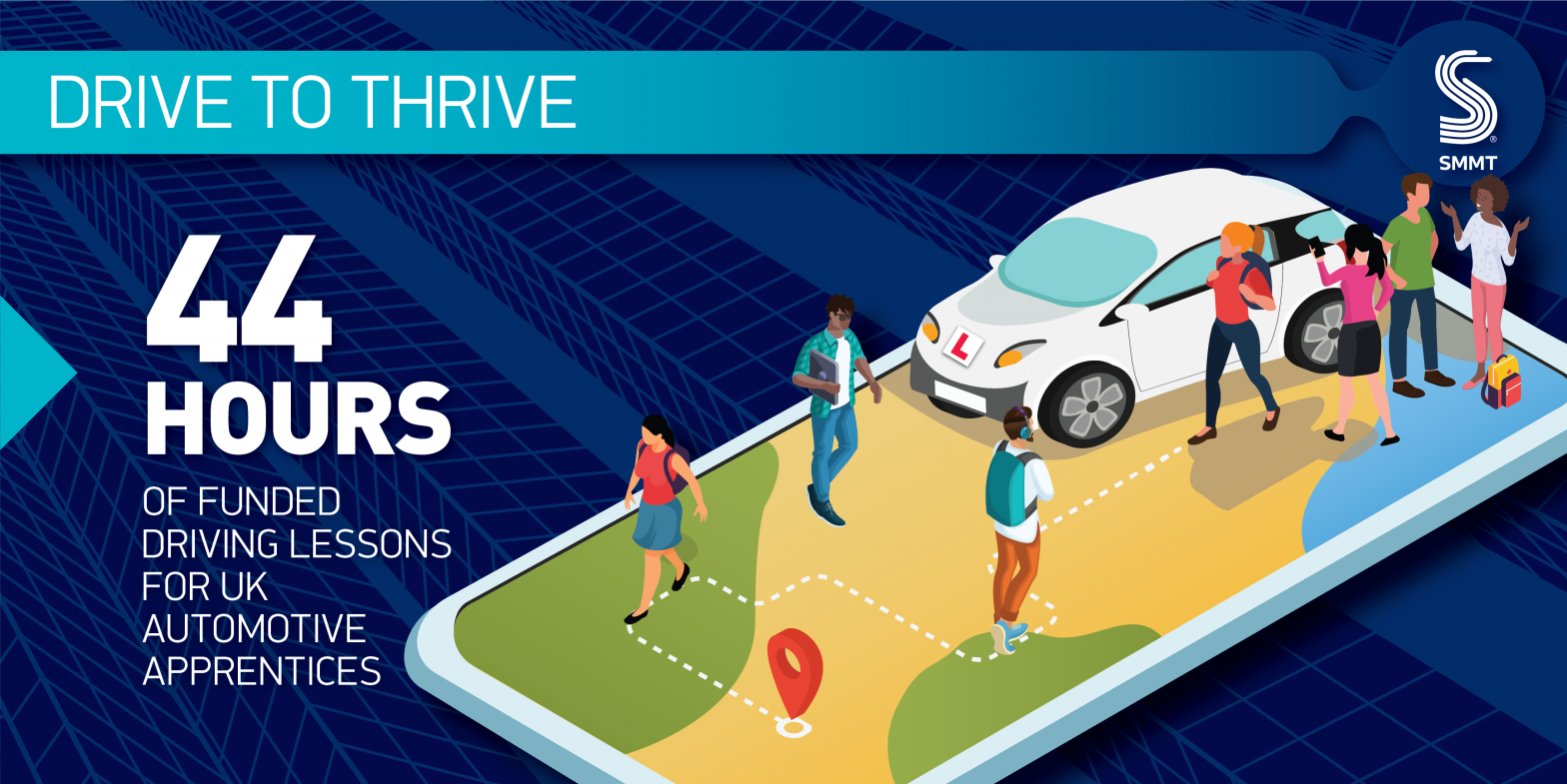- UK Automotive launches new driving lesson fund, Drive to Thrive, supporting apprentices to gain the life-changing advantage of car mobility.
- Scheme will help fresh automotive talent develop as employers deliver new skills and jobs at all levels – with 14,000 roles created or expected thanks to huge net zero investments.
- Ambitious young people from all backgrounds encouraged to consider cutting-edge opportunities to research, design, build, test and repair the latest zero emission and automated vehicle tech.


Britain’s automotive industry is helping young people gain the life-changing advantages of car mobility thanks to a new pilot scheme that helps fund driving lessons for new apprentices in the sector. Drive to Thrive, launched today by the Society of Motor Manufacturers and Traders (SMMT) Charitable Trust Fund in partnership with automotive charity Ben, is further evidence of industry’s commitment to its workforce – with more than 14,000 new jobs related to the net zero transition being created or expected in the UK thanks to huge investment from auto employers.
Apprentices taking part in Drive to Thrive are set receive up to 44 hours of funded driving lessons while learning their trade, with the pilot fund supporting 10 apprentices in its first year. Participants must be aged 17 to 21 years old and meet eligibility criteria such as coming from a disadvantaged background that might otherwise limit their opportunities for driving lessons or long-term career progression.


The scheme follows a jump in the number of apprentices and trainees in the UK automotive sector, up 45.3% last year1 – growth that is part of a long-term trend with more than £11 billion having been committed to decarbonisation since 2011,2 along with some £600 million of public-private investment in testing automated and connected vehicles.3
As the latest Automotive Industry Career Guide shows, new and exciting positions in the industry range from testing and developing EV batteries to designing self-driving cars, repairing and maintaining hydrogen trucks and engineering the software that will safely put automated buses on the road – plus many more opportunities for prospective recruits to grab their dream job.


There are also significant opportunities to progress within the industry, with the average number of dedicated training days per employee up 23.5% last year, while automotive salaries are some 14% above the UK average.4 Britain’s automotive sector is world-renowned for R&D excellence, and its highly skilled and productive workforce is fundamental to its long-term success – and ambitious, talented apprentices are crucial – so it is a top priority for employers across the industry to make sure they can progress their career and thrive.
Mike Hawes, SMMT Chief Executive, said, “Apprentices have been a driving force behind Britain’s automotive industry for generations and they have never been more important, as employers seek cutting-edge skills for the new technologies that will power our future mobility. These technologies offer exciting career paths but accessing them often depends on having access to personal mobility. Drive to Thrive will help automotive businesses attract the next generation of top talent, while giving apprentices the ability to turbocharge their careers and deliver the growth that is essential to our future success.”
Rachel Clift, Director of Health & Wellbeing, Ben, said, “We’re delighted to be involved in this important initiative. It’s a win-win situation, providing opportunities for young people from disadvantaged and minority backgrounds, and bringing much-needed new talent into the automotive industry. The future of our industry requires a whole new skillset with the rise in EVs and new technologies. We’re looking forward to working closely with the SMMT and supporting the workforce of the future.”
Notes to editors
1 Sustainability Report, SMMT, July 2023.
2 Race to Zero: Powering Up Britain’s EV Supply Chain, March 2023.
3 Connected and automated mobility revolution set to deliver £66 billion prize by 2040, November 2023.
4 Sustainability Report, July 2023.
